Zone Atelier Plaine & Val de Sèvre
Research Infrastructure

The Long-Term Social-Ecological Research (LTSER) platform Zone Atelier Plaine & Val de Sèvre (ZAPVS) is a large-scale and long-term research infrastructure, part of the French Zone Atelier, that belong to the eLTER and iLter networks. This intensive cereal plain (ca. 435 km²) encompasses over 400 farms with quite diversified farming systems (organic farming, conservation agriculture, precision agriculture, or conventional agriculture). There are 24 municipalities inside the ZA PVS for a total human population of 34,000 inhabitants (human population density of c.60/km²). The ZAPVS research program is grounded in the agroecological principles, experiments set up from field to landscape scale and farmers involvement thanks to more than 25 years of collaboration between scientists and farmers.
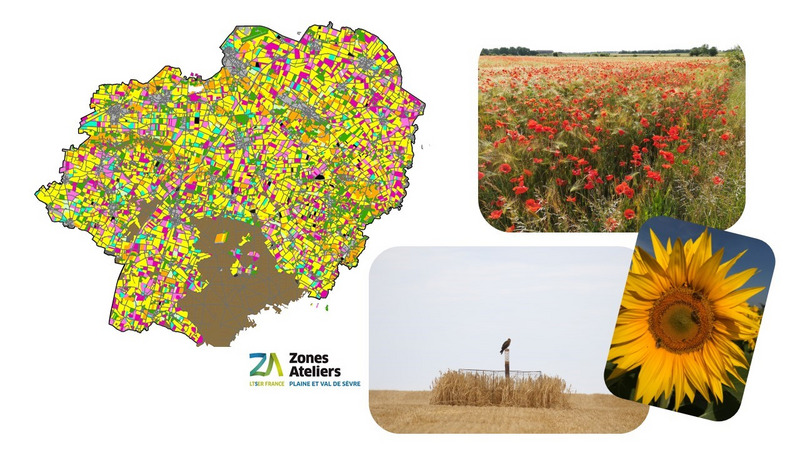
Aim
Fostering transformative change of agricultural landscape towards higher resilience, in order to ensure food security and global health.
History
- 1994: First biodiversity and land use monitoring
- 2009: Labelled “Zone Atelier”
- 2012: First on-farm socio-ecological experiments
- 2018: Became a Research Infrastructure Platform
- 2018: Launch of the Aliment’Actions project aiming at connecting producers and consumers
Activities
- Long-term monitoring of biodiversity, ecological functions, land use, agricultural practices and food consumption practices
- Testing experimentally, with farmers in their farm, solutions to reduce the footprint of agriculture on the environment, biodiversity and human health; especially focusing on the role of biodiversity for crop production and farm economic performance in low input conditions
- Exploring how landscape and local management interact to shape biodiversity and ecological functions in order to design multifunctional and resilient agricultural landscape
- Organizing workshops with farmers, beekeepers and inhabitants to co-design sustainable agri-food systems
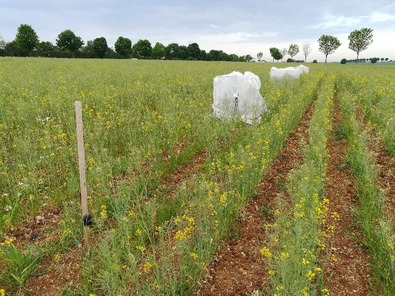
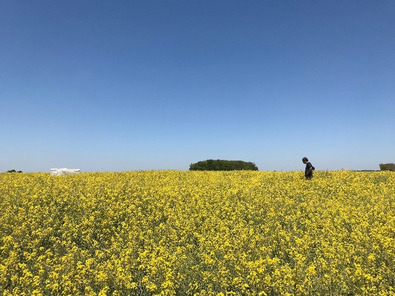
On-farm experiment aiming at quantifying the benefits of insect-pollination to oilseed rape yield @Vincent Bretagnolle & @Sabrina Gaba
Methods, stakeholder engagements and tools
The research conducted in the Long Term Social-Ecological Research site “Zone Atelier Plaine & Val de Sèvre” is interdisciplinary, involving scientists in agroecology, ecology, ecotoxicology, economy, management sciences ... and transdisciplinary as they also engage also non-academic in the research process. Each year since 1994 for the oldest, biodiversity, ecological functions, land use and agricultural practices are monitored in more than 100 arable fields yearly. Since 2012, socio-ecological experiments have been set up with farmers in their fields to explore how the reduction of inputs (pesticides, fertilizers) or of soil interventions could positively affects biodiversity and in turn benefit to crop production (and farmers revenues) through the increase of the magnitude of ecosystem services (e.g. pollination, natural pest control, soil recycling). Farmers decision-making processes are then analysed to identify effective and efficient tools and policies for a sustainable transformation. Currently experiments are conducted with more than 60 farmers of the ZAPVS.
In 2018, a research project named Aliment’Actions was launched to contribute to individual and collective awareness of the issues surrounding food, agriculture and the environment; and to foster collective design processes and actions facilitating food and agroecological transitions. A panel of interventions are set up in the villages of the Research Infrastructure (i.e. there are 24 villages in this 450km² agricultural territories).
Acievements
- Yearly, more than 100 farms take part voluntarily within the research process
- Significant results on the efficiency of nature based to solution for crop production and farmers’ economic performance such as crop competition to regulate weeds (Catarino et al. 2019a Sc. Rep, Gaba et al. 2018 Ecosphere), or crop pollination by pollinators (Perrot et al. 2018 AEE, Perrot et al. 2019 BAE, Catarino et al. 2019b Proc R Soc)
- Building relationship with consumers to build their capacity to transform their local agri-food system
- Engage scholars and citizen in participative science to increase their awareness on the human-nature relationships
- Opportunity to take part in EU research cooperations (H2020), multi-actor and transdisciplinary approach
Further information and Links
- Farmland Birds: Youtube Video
- Socio-Ecological Experiment: Youtube Video
- Pesticides & Pollinators: Youtube Video
- Farmers & Citizens relationship – Theatral Creation: Youtube Video
- Bretagnolle, V., Berthet, E., Gross, N., Gauffre, B., Plumejeaud, C., Houte, S., ... & Gaba, S. (2018). Towards sustainable and multifunctional agriculture in farmland landscapes: lessons from the integrative approach of a French LTSER platform. Science of the Total Environment, 627, 822-834.
- Gaba, S., & Bretagnolle, V. (2020). Social–ecological experiments to foster agroecological transition. People and Nature, 2(2), 317-327.
- Berthet, E., Gaba., S., & Bretagnolle, V. (2022) Place-based social-ecological research is crucial for designing collective management of ecosystem services, Ecosystem services, in press
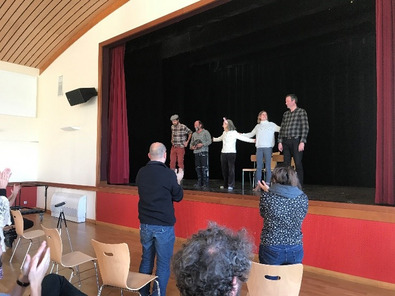
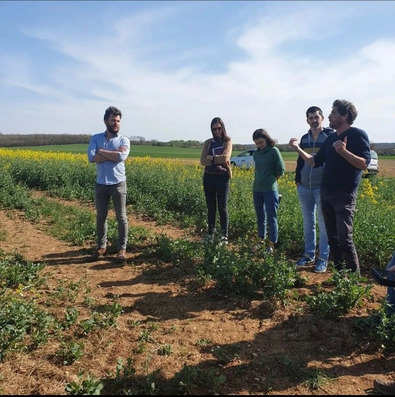
 tap and then scroll down to the Add to Home Screen command.
tap and then scroll down to the Add to Home Screen command.